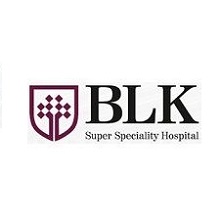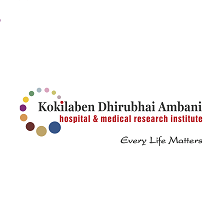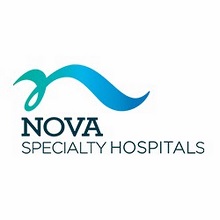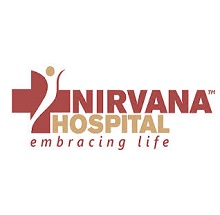Medical Treatments
- Urology Treatment
- Bariatric Obesity Surgery
- Oncology Cancer Treatment
- Cardiology
- Cosmetic Plastic Surgery
- ENT-Head And Neck Surgery
- Infertility Or IVF Treatment
- Joint Replacement Surgery
- Spine Surgery
- Organ Transplant
- Neurology
- Orthopedic Surgery
- Nephrology
- Stem Cell Therapy
- Endocrionology Or Diabetes
- 3D Liposuction Abdomen Lower Back
- Breast Lifting Implant
- Paediatrics Child Neonate
- Robotic Surgery
- Dentistry Dental Implant
- Gynaecology
- Pulmonology /Chest /Respiratory
- Dermatology And Venerelogy
- Opthalmology Eye Treatment
- Gastroenterology Or Hepatology
- Cyber Knife Radiosurgery
- Bone Marrow Surgery Transplant

Organ Transplant
What is Organ Transplantation?
Replacement of a failing organ with another persons’ healthy organ is generally stated as Organ Transplant. Organs which are mostly transplanted include Heart, Kidney, Lung, Liver, Pancreas, Small Intestine & the list goes on. Multiple organs can be transplanted at a time, for instance, lung & heart can be transplant in a single surgery.
Organ Transplantation Surgery in India with AVAN MediTour
Organ procurement process involves timely removal from donors along with attached legal requirements including consent & definition of death. Kidney transplantation treatments in India are subject to legal issues which require to be effectively sorted out. Procurement often requires ensuring rigorous selection procedures. In treatments where possible, living donors with good health are simpler & carry negligible risks. This situation allows periodical follow-up of donor ensuring optimal management without any untoward consequences.
Cost of Organ Transplantation in India
Many international patients prefer India for Organ transplantation just because of low cost of treatment & top-class medical facilities when compared to other countries. Kidney Transplantation Low Cost in India allows people from all strata of society get best medical services.
Common Organ Transplants:
Kidney Transplant
Kidney Transplantation is also known as Renal Transplantation. This organ transplant of kidney into a patient with end-stage renal failure is typically classified as living-donor or deceased-donor transplantation depending upon the source of donor organ. Regardless of primary cause indication forkidney transplantis end-stage renal failure. Common diseases leading to this medical condition include diabetes mellitus, focal segmental glomerulosclerosis, infections & malignant hypertension. Genetic factors indicatingKidney transplantinclude polycystic kidney disease, variety of inborn errors of metabolism & autoimmune medical conditions like lupus. Majority of prospective recipients for renal transplant are on dialysis & expecting transplantation as viable medical solution.
Liver Transplant
Liver Transplantation is also known as Hepatic Transplantation. It involves replacing a diseased liver with a healthy one from another person. Orthotropic Transplantation is the most common technique used for Liver Transplant where the native liver is replaced by donor organ in the same anatomic location. Liver Transplant is one of the most viable treatment options for acute liver failure in end-stage liver disease.
This surgical procedure is quite demanding on medical professionals & operating time range between 4-18 hours depending upon outcome. Numerous sutures & an astomoses, reconnections & disconnections are required to be made for Liver Transplants to succeed. This surgical procedure also requires an eligible recipient with a well-calibrated cadaveric donor match. Potentially available to acute or chronic conditions resulting from irreversible liver dysfunction, advanced age & serious heart, pulmonary or other diseases may prevent transplantation.
Heart Transplant
Heart Transplant is also known as Cardiac Transplant. This surgical transplantation procedure is normally performed on patients with severe coronary artery disease or end-stage heart failure. Common procedure involves extracting a working heart from recently diseased organ donor & implanting this into the patient. Patients own heart is either removed, or sometimes left in place as support to donor heart. Though it is no cure for heart disease but life-saving treatment, post-operational survival period records average 15 years.
Lung Transplant
Lung Transplantation is also known as Pulmonary Transplantation. It is a surgical procedure where patient’s diseased lungs are partially or totally replaced by donor lungs. Donor lungs are retrieved from living or deceased donors. In case of a living donor it is only possible to receive just one lung lobe which is sufficient in some lung disease conditions. However, with other lung diseases like cystic fibrosis, it is imperative that recipients obtain two lungs. Though Lung Transplants come with certain associated risks, they at the same time also enhance quality of life & extend expectancy for patients with end-stage pulmonary diseases.
Pancreas Transplant
Pancreas Transplant involves implanting healthy pancreas that can produce insulin, into a person who is suffering from diabetes. Pancreas is a vital organ assisting digestion. Without disturbing the patient’s native pancreas, the new donor pancreas is attached at a different location. The idea is to survive on under-functional native pancreas in the event of rejection of donor pancreas. New, healthy pancreas, generally come from donors who have recently died. Presently, Pancreas Transplants are performed for patients with insulin-dependent diabetes. General complications associated withPancreas Transplant surgeryincludes bleeding, infection, pancreatitis, thrombosis & rejection which may immediately occur or at any time in future life.
Intestine Transplant
Intestine Transplantation is also known as Intestinal Transplantation or Small Bowel Transplantation. This is a surgical replacement procedure of small intestine for acute & chronic cases of intestinal failure. Though cases of intestinal failure can often successfully be treated with alternative therapies, associated complications like liver disease & short bowel syndrome make Intestine Transplant appear as the only viable option. Intestine Transplant is a rare type of organ transplantation surgical procedure but which is increasingly becoming prevalent as a therapeutic option due to surgical advances, immunosuppressive regimens & clinical management.
Good Candidates for Organ Transplant
Not everyone is an ideal candidate for organ Transplant. You will have to undergo tests at the transplant center & qualify. You will not be a good candidate in case you have infections, heart disease beyond control, alcohol or drug problems, or any other serious healthcare issue. Then perhaps, if you are selected, will be put on a wait list. The essential things that are checked before organ transplantation are:
- Condition of Patient
- Condition of Donor
- Organ Condition
- Compatibility between Donor & Receiver
Types Of Organ Transplant |
Days in Hospital |
Procedure Cost (USD) |
|---|---|---|
| Kidney Transplant cost in India for Unrelated Donor and Recipient | Donor-10 days in multiple bed; | 10000 |
| Kidney Transplant in India for Related Donor and Recipient | Recepient- 14 days in Single Room | 7000 |
| Bone Marrow Transplant cost in India | Depend on the type of bone marrow transplant | 40000 |
| Liver Transplant Surgery cost in India | Depends upon the treatment | 50000 |
| Unilateral With Digisynic Implant | 3 | 16000 |
| Bilateral With Digisynic Implant | 3 | 30000 |
Inclusions and Exclusions
INCLUSIONS
1. Airport Pick-up on Arrival in India2. Airport Drop on Departure from India
3. Cost of initial Evaluation and Diagnosis
4. Cost of the Surgery or Treatment
5. Cost of applicable one implant/prosthesis
6. OT Charges and Surgeon’s Fees
7. Consultation Fees of the Doctor for the concerned specialty
8. Nursing and Dietician’s Charges
9. Hospital Stay for the specified number of days in the respective room category as mentioned against the package
10. Hospital stay includes stay of the patient and one attendant for the duration of stay mentioned against the package
11. Routine investigations and medicines related to the surgery or treatment.
12. Food for the patient and the attendant for the specified number of days as mentioned against the package
13. Travel Assistance/Medical Visa Invite/FRRO/ Visa Extensions
14. Assistance in finding right budget hotel or guest house accommodation.
15. Issuing Invitation Letter for Medical Visa.
EXCLUSIONS
1. All expenses for stay beyond the specified number of days2. Cross Consultations other than the specified specialty
3. Use of special drugs and consumables
4. Blood products
5. Any other additional procedure
6. Post discharge consultations, medicines, procedures and follow-ups
7. Treatment of any unrelated illness or procedures other than the one for which this estimate has been prepared
8. Travel Expenses and Hotel Stay
DISCLAIMER:
* Quote given is ONLY for the treatment in the hospital and DOES NOT include food as well as the accommodation cost outside the hospital.
* The quote may vary in case of co-morbidities, which are associated medical conditions and an extended stay.
* The treatment suggested is as per the information and reports provided to us. The line of treatment may differ according to the additional and comprehensive details asked by our consultants.
* The prices quoted are only indicative and may differ. They can be confirmed only after the patient is assessed by a doctor.
* The complete treatment cost has to be deposited in advance after the finance counseling for the patient is done at the hospital











